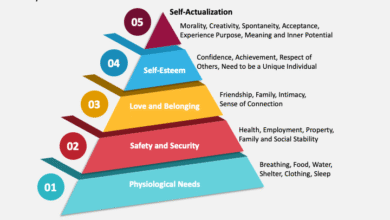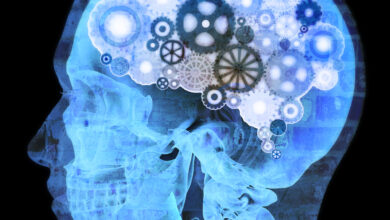The Biological Perspective: Exploring the Science Behind Behaviour

The biological perspective, also known as biopsychology, examines how biological processes influence human behaviour and mental functions. This approach emphasises the role of genetics, the brain, the nervous system, hormones, and other physiological factors, arguing that thoughts, emotions, and behaviours stem from biological foundations.
Core Principles of the Biological Perspective
Biopsychology is rooted in the idea that behaviour is a product of biological mechanisms rather than external conditioning or unconscious desires. Some key principles include:
- Brain Structure and Function: Different brain regions control various cognitive and emotional processes.
- Neurotransmitters: Chemicals in the brain that transmit signals, affecting mood, memory, and behaviour.
- Hormonal Influence: Hormones regulate emotions, stress responses, and physiological states.
- Genetics: Heredity plays a crucial role in personality traits, intelligence, and mental health conditions.
The Role of the Brain in Behaviour
Each part of the brain contributes uniquely to psychological processes:
| Brain Region | Function |
|---|---|
| Frontal Lobe | Decision-making, problem-solving, and reasoning |
| Temporal Lobe | Memory processing and language |
| Parietal Lobe | Sensory integration, spatial awareness |
| Occipital Lobe | Visual processing |
| Amygdala | Emotion regulation, fear response |
| Hippocampus | Memory formation |
Understanding these regions helps researchers develop treatments for neurological disorders like Alzheimer’s disease, Parkinson’s, and traumatic brain injuries.
Neurotransmitters and Their Impact
Neurotransmitters are essential chemical messengers in the brain that affect behaviour and mood:
- Dopamine – Associated with pleasure and motivation (linked to disorders like addiction and Parkinson’s).
- Serotonin – Regulates mood and emotional balance (implicated in depression and anxiety).
- GABA – Helps calm neural activity (essential for managing stress and anxiety).
- Endorphins – Reduce pain and increase feelings of well-being.
Genetics and Behaviour
Genetics play a significant role in mental health and personality traits. Studies in behavioural genetics investigate:
- Twin Studies: Examining identical vs. fraternal twins to assess hereditary influences.
- Gene-Environment Interactions: How lifestyle factors shape genetic expression.
- Heritability of Disorders: Understanding the genetic basis of schizophrenia, bipolar disorder, and autism.
Applications of the Biological Perspective
Biopsychology contributes to multiple fields, including:
- Mental Health Treatment: Developing medication-based approaches for depression, anxiety, and neurological disorders.
- Neuroscience Research: Studying brain plasticity and cognitive function.
- Behavioural Medicine: Understanding stress responses and their physiological effects.
Criticism and Limitations
While the biological perspective provides scientific explanations for behaviour, critics argue that it can oversimplify complex psychological phenomena by focusing too much on biology while neglecting emotions, experiences, and environmental factors.
1. Neurological Disorders and the Biological Approach
Biopsychology plays a crucial role in understanding and treating neurological and mental disorders. Some key conditions studied through the biological lens include:
- Schizophrenia – Associated with abnormalities in neurotransmitter activity, especially dopamine dysregulation.
- Depression – Linked to low serotonin levels, which antidepressant medications aim to balance.
- Alzheimer’s Disease – Caused by the buildup of beta-amyloid plaques, leading to memory loss and cognitive decline.
- Parkinson’s Disease – Results from the degeneration of dopamine-producing neurons in the brain.
- Anxiety Disorders – Related to heightened amygdala activity, influencing fear and stress responses.
By studying brain chemistry, genetics, and neurological functioning, biopsychology helps develop targeted medications and therapies.
2. Groundbreaking Treatments Influenced by Biopsychology
The biological approach has led to major advancements in mental health treatments:
- Selective Serotonin Reuptake Inhibitors (SSRIs) – Medications like Prozac and Zoloft help regulate serotonin levels to combat depression and anxiety.
- Dopamine Agonists – Used to treat Parkinson’s Disease, these drugs help restore dopamine function.
- Electroconvulsive Therapy (ECT) – A treatment for severe depression that resets brain activity.
- Deep Brain Stimulation (DBS) – A surgical intervention for Parkinson’s and severe mental disorders, where electrodes are placed in the brain.
- Neurofeedback Therapy – Helps patients control brainwave activity for conditions like ADHD.
Each of these innovations stems from decades of research in biopsychology, improving lives worldwide.
3. The Role of Genetics in Mental Health
Biopsychology emphasises genetic predispositions for mental health conditions. Studies have found:
- Schizophrenia and bipolar disorder have strong hereditary links.
- Anxiety disorders may be partially inherited, influenced by genes regulating neurotransmitters.
- Addiction risks may be heightened by genetic factors related to dopamine reward systems.
This knowledge allows researchers to develop personalised treatment plans, improving therapeutic outcomes.
4. Neuroscience Breakthroughs and Brain Imaging
Advancements in brain imaging technologies have revolutionised biopsychology:
- Functional MRI (fMRI) – Maps real-time brain activity, used to diagnose neurological disorders.
- Positron Emission Tomography (PET) – Shows chemical activity in the brain, helping identify mental health conditions.
- Transcranial Magnetic Stimulation (TMS) – Uses magnetic fields to stimulate brain regions, treating depression.
These tools deepen our understanding of how the brain functions, paving the way for future treatments.
Conclusion
Biopsychology continues to shape modern psychology, offering scientific insights into behaviour, mental health, and neurological disorders. Whether through brain imaging, medication, or genetic research, the biological perspective remains essential in understanding and improving human well-being.



